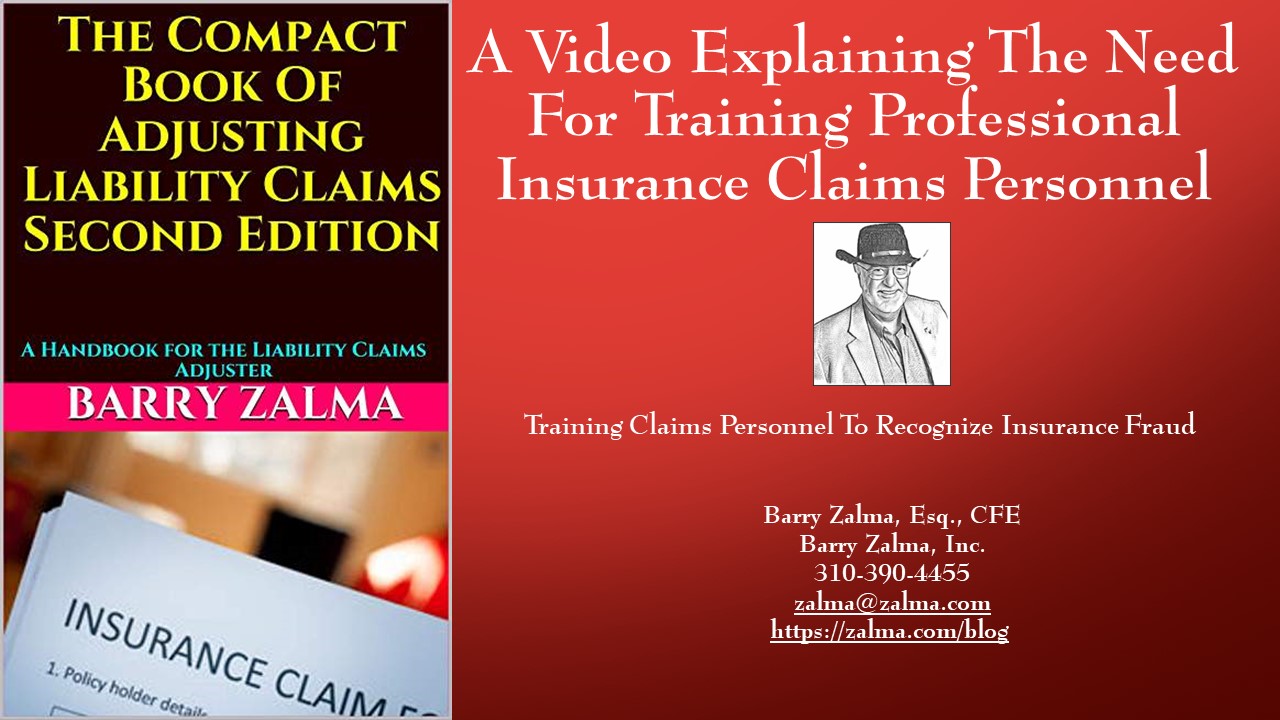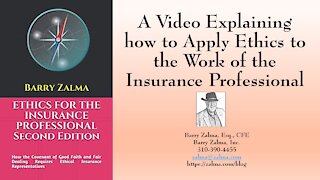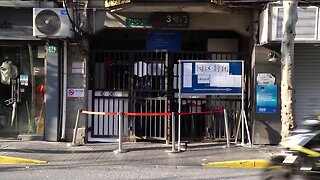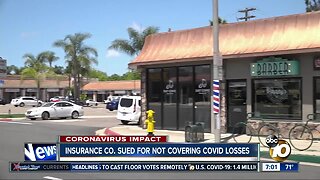Premium Only Content

A Video Explaining The Need For Training Professional Insurance Claims Personnel
Training Claims Personnel To Recognize Insurance Fraud
The introduction of the tort of bad faith resulted in the insurance industry running scared for many years from investigating fraud. Insurers avoided denying claims fearful that they would subsequently be sued for bad faith. Insurers discouraged their adjusters from looking too closely at claims. As a result, knowledgeable personnel either looked for another career or were laid off by companies interested in improving their bottom line by hiring the less experienced personnel.
Insurance fraud investigations are often expensive. The extent of insurance fraud, depending on which of the various estimates are believed vary from $80 billion to $300 billion dollars every year. The sum is so enormous as to defy understanding. Insurers are finding that they cannot increase premiums to honest insureds fast enough to cover the amounts lost to fraud. They cannot afford to let such an enormous amount of money deplete their assets and destroy their profits without a fight.
The first line of defense to stop the hemorrhage of billions of dollars to fraud perpetrators is a staff of well-trained experienced and professional adjusters and investigators.
Although many adjusters will never witness the sorts of frauds described in this book, they must be trained to recognize fraud, and thus be equipped with enough knowledge to separate the suspicious from the honest claim. States, like California, require that insurers train all of their claims personnel to recognize insurance fraud, attempted insurance fraud and the indicators or red flags of insurance fraud. The laws and regulations attempting to force the victim of the crime, insurers, to investigate and prepare prosecutions for the state, are unfortunately honored more in the breach than in the following. Even when the insurer does the work to prepare an investigation sufficient to support a prosecution, the local prosecutor refuses to prosecute an insurance fraud case because it requires dealing with a great deal of paper and other investigative materials and the need for expert witnesses. It is much easier to prosecute a violent crime with an injured victim and a few witnesses.
Every claims person and SIU investigator should be aware that suspicious claims have the common attributes or red flags of fraud. Insurers and their anti-fraud organizations have collated the common attributes into lists of indicators or red flags of fraud.
Barry Zalma, Esq., CFE
Barry Zalma, Inc.
310-390-4455
[email protected]
https://zalma.com/blog
-
 10:17
10:17
Barry Zalma, Inc. on Insurance Law
1 year agoWho's on First - Defense and/or Indemnity
196 -
 15:53
15:53
zalma
5 years agoThe Ethical Insurance Professional
18 -
 3:00
3:00
KSHB
5 years agoUnemployment Insurance Claims Skyrocketing
44 -
 3:43
3:43
KGTV
5 years agoInsurance claims for local restaurants denied
13 -
 2:13
2:13
WTMJMilwaukee
5 years agoWill travel insurance cover coronavirus claims?
188 -
 2:44
2:44
KGTV
5 years agoLocal barber says insurance company denied claims
14 -
 1:41
1:41
WMAR
5 years agoMaryland unemployment insurance claims down for second straight week
13 -
 1:41
1:41
WMAR
5 years agoMaryland unemployment insurance claims down for second straight week
10 -
 2:15
2:15
WMAR
5 years agoState agency assists Marylanders with storm damage insurance claims
10 -
 1:07
1:07
KTNV
5 years agoNevada's unemployment office reports another rise in initial insurance claims
20